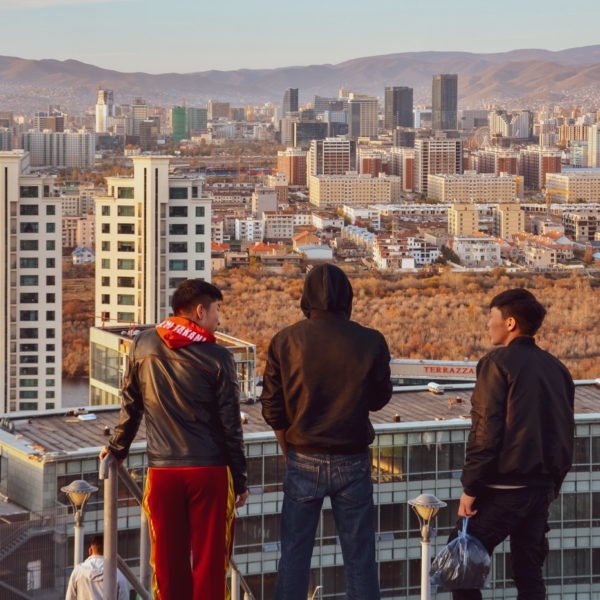Mongolia
History of Christianity in Mongolia.
Early Christianity in Mongolia can be traced back through Central Asia and the Uyghur people and eventually to the Church of the East ( Nestorian Christians, in modern day Syria). Nestorian missionaries began evangelizing to the disparate Mongolian tribes, some of which received the gospel and became Christianized. Centuries later, women from these Christian tribes became the wives of Chinggis Khan’s (Genghis Khan) sons and these Christian wives exerted great influence on their husbands and sons.
Chinggis Khan’s grandson Kublai Khan, the first emperor of the Yuan Dynasty in China, though he never became a Christian himself, promoted and supported many churches and missionaries within his empire. His interest in Christianity extended to even asking Pope Gregory X to send 100 missionaries to teach and baptize inside his empire, sadly however Pope Gregory X only sent 2 missionaries many years later and both missionaries never made it to China.
After this missed opportunity, Christianity basically disappeared from Mongolia and there was very little openness or progress in gospel until 1990, after the end of communism in Mongolia. At this time, because of the spiritual vacuum caused by communist teachings, many Mongolians, especially young Mongolians were very open to the gospel for the first time in centuries.
Many Christian organizations and missionaries from around the world came to Mongolia to fill this spiritual vacuum with the gospel of Christ. One notable missionary was John Gibbons who, along with his Mongolian wife, had translated the New Testament into Mongolian and had thousands of copies printed and ready to be distributed within weeks of Mongolia opening up to the world. Joseph Ahn led a survey team of 3 to Mongolia in 1991 and had its first summer English program there in 1992 and led about 50 students to Christ that summer. This was significant because there were estimated to be only 50 Christians total in 1991.
In these early years VSET, along with Pastor Kwan from South Korea, were the main people doing cold contact evangelism in Ulaanbaatar and experienced great blessing and spiritual fruit. The second VSET program saw 100 students accept Christ and the third summer another 150 students profess faith in Christ. A good number of these students joined Pastor Kwan’s church, Uurdiin Gegee, where many of them grew in their faith. Pastor Kwan trained up many young men in these early years and sent them evangelizing and planting churches throughout many small towns in the countryside. Later on, many of these VSET converts became translators and leaders in various Mongolian churches.
Current religious situation in Mongolia.
As of 2020, there are an estimated 40,000‐50, 000 Christians (out of a population of 3 million) and there are small groups of Christians meeting together in every province in Mongolia. Though the early coverts to Christ were exclusively young people (especially young girls), in the years since the early 1990s, more and more older adults and families began to embrace Jesus as well.
However Christians are still the extreme minority comprising only 1.7% of the population, while Buddhism and Shamanism are the most prevalent at 35% each. A growing segment of Mongolians (25%) identify as non‐religious, the result of past Soviet influences and current Western influence.
Christianity is growing well in the main city of Ulaanbaatar, as well as in the different provincial capitals. However, in the countryside where 25% of the population still lives as traditional pastoralists, Christian evangelism and discipleship has been limited because of the lack of pastors and leaders living among them year‐round.
Needs to strengthen the work of the gospel and hinderances to the work. Cultural corruption/spiritual condition.
One of the biggest issues affecting Mongolia today is the prevalence of broken families. The official divorce rate is around 30%, but that is because most families are not legally married – in Ulaanbaatar, it is common to consider a young man and young woman “married” once they start living together and especially once the woman is pregnant. The actual divorce rate, however, is closer to 60‐70%, which makes having 2 parents in the home a rare blessing. The result is a lot of brokenness and emotional wounds in many people, who have been raised by only one parent or their grandparents, and feel rejected and unloved. There is a deep need for the gospel of Christ and his grace and love to bring inner healing and transformation.
Another result of these broken families is the poor character and values that many young people have – this is due not only to the lack of a parent, but also the fact that most families do not teach good character and values, let alone godly Christian character. So one of the biggest needs is to teach and train people to have “basic” qualities such as punctuality, diligence, self‐control, and respect for authority, as well as Christian character such as humility, brokenness, and forgiveness and reconciliation. The best way to do this is through “life on life” discipleship and home‐training.
A third result of broken families is rampant sexual immorality. This is partly a result of the influence of communism which destroyed many traditional values, including marriage and family, but is also the result of Mongolian culture, which has never highly valued female virginity and has a history of forcible bride kidnapping, and has also promoted a “trial period” for new marriages, where the marriage could be annulled and the new wife rejected if she proved to be barren and unable to bear children. This has led the young generation to engage in frequent sexual immorality, even from a young age, in otherwise a very conservative culture. This struggle with sexual immorality often extends even to the leadership in the churches with leaders, men and women, engaging in one night stands.
Another issue that faces Mongolia and Mongolian Christians is the frequent division that results from the difficulty of submitting to authority. This is due in large part to Mongolia’s nomadic culture which has caused Mongolians to live freely in tribal units, rather than an organized country for most of its history. Unfortunately, there is a long history of church schisms among the Mongolian church, dating even back to the early 1990’s when these churches were just started.
One of the biggest spiritual needs is for more missionaries and local Mongolians to preach the gospel. The vast majority of Mongolians have never heard the gospel, let alone a concise and compelling presentation of the gospel and sadly most Mongolian Christians are not trained to share the gospel clearly, boldly, and with faith. Another need is for depth of Christian discipleship, as very few churches are equipped to teach and train their congregations to grow in faith, character, and spiritual passion.
There is also a need for godly men and godly families because a very high percentage of Mongolian men are alcoholics which has led to high incidences of domestic abuse, rampant divorce, and also many men without stable jobs. Many Mongolian young people have never seen a healthy, loving family and so life on life discipleship training as well as hospitality and home training are especially necessary.

